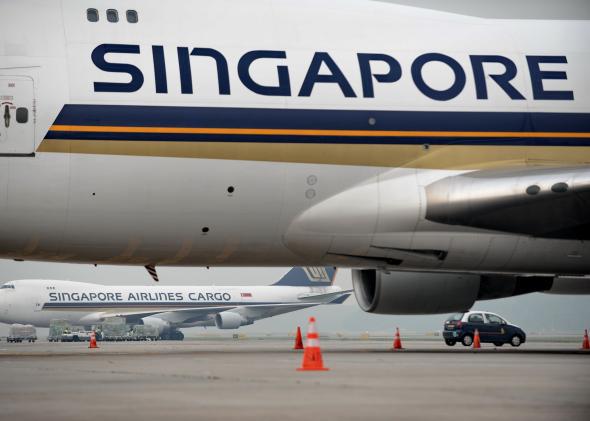Last week, Jeremy Gutsche flew from London to Singapore on Singapore Airlines. He purchased a 30 MB in-air Internet package for $28.99. When he deplaned, he was shocked to learn he’d been hit with an additional $1,142.47 in overage charges.
Gutsche, the chief executive of Trend Hunter, a self-described “popular trend community” website, says he racked up a terrifying $1,171.46 bill for in-flight Wi-Fi from provider OnAir. In an initial post on Trend Hunter, Gutsche wrote that he used data to upload a 4 MB PowerPoint and make “155 page views, mostly to my email.” He says video, the typical culprit in over-the-top data bills, didn’t even play a role—“the Singapore Airlines internet was painfully slow, so videos would be impossible.”
Singapore Airlines initially contacted OnAir on Gutsche’s behalf but said this week that he would have to pay the full amount. And while there are plenty of horror stories about companies—especially mobile carriers—abusing customers’ data charges, Gutsche hasn’t elicited much sympathy on this one so far.
OnAir told the Wall Street Journal in a statement that its service terms are “entirely transparent.” To use the amount of data that Gutsche consumed, OnAir said, “takes much more than basic email viewing, for example downloading heavy attachments, cloud access and using Skype.” (For an easy comparison, a Gmail attachment can be up to 25 MB.) More importantly, OnAir said that a graph constantly shows passengers how much data they’ve consumed and that those users can choose for their sessions to end at a preset price limit, and/or disconnect at any time.
Gutsche told the Journal he wasn’t buying the “buyer beware” argument. “Just because someone agrees to terms and conditions doesn’t mean those terms are ethical,” he said. “I think the overage model is excessive.” Perhaps. But in that case, maybe he shouldn’t have risked it in the first place.
